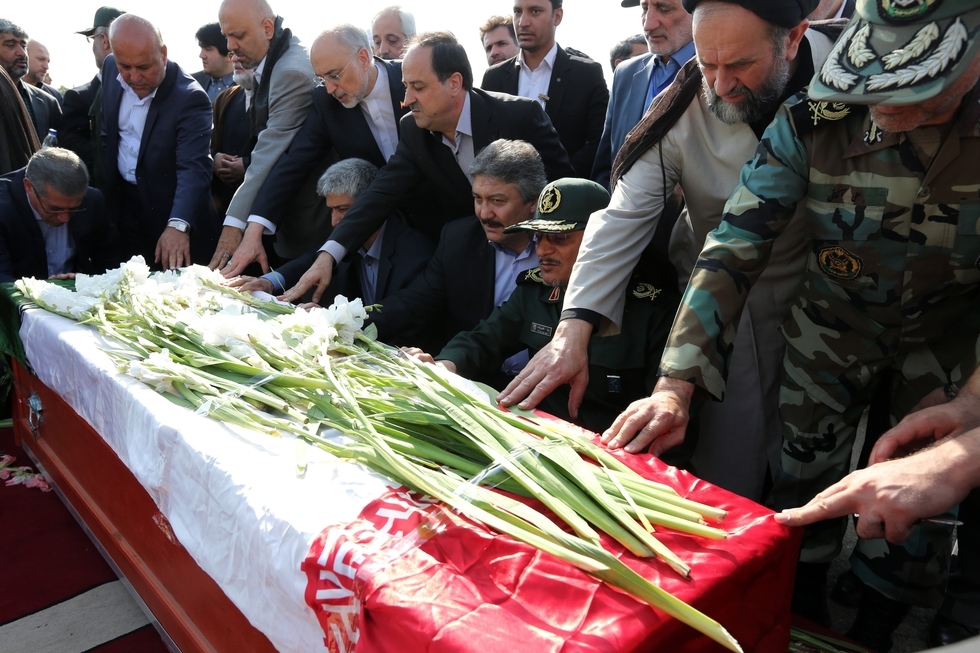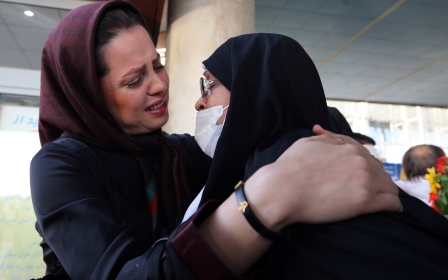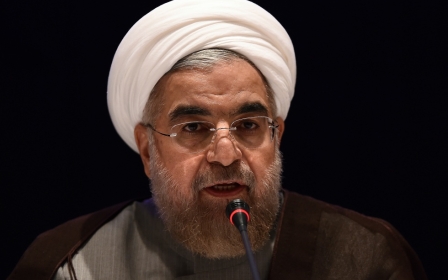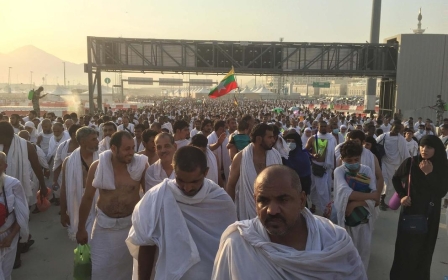ANALYSIS: Iran blames Saudi for Hajj stampede, likely to seek form of revenge

TEHRAN - On 24 September, Iran’s main news channel IRINN broke the story of a catastrophe in Mina, a place close to the holy city of Mecca in Saudi Arabia. The shocking story was about a stampede, which caused hundreds of people to suffocate or be crushed to death. Soon afterwards, Iranians had to wait anxiously as many of them had a relative travelling to Mecca to perform the Hajj.
Hajj, the annual Islamic pilgrimage to Mecca, is a mandatory religious duty for Muslims that must be carried out at least once in their lifetime. According to Iran’s Hajj Organisation, more than 64,000 Iranians travelled to Mecca for Hajj in 2015.
During the first hours of the incident, the head of Iran’s Hajj Organisation was interviewed by state TV during which he announced happily that only a small number of Iranians had lost their lives. But as time passed and investigations were being completed, the death toll of Iranians increased. The first death toll figure of Iranian pilgrims proclaimed by state TV was six people, but it then jumped to 36 and a few days later 136. On 1 October, the number of Iranians killed leapt to more than 450.
A war of words immediately broke out between Tehran and Riyadh over the cause of the stampede.
Saudi’s Interior Ministry spokesperson Mansour al-Turki said it was started when “a group of pilgrims on buses were allowed to descend onto the pathways that lead to the Jamarat Bridge at a time that wasn’t allocated to them”.
Iranian officials believe, however, that the incident was due to what they described as the incompetence of the Saudi government in managing the Hajj. At the same time, Iran’s state TV broadcast a video clip showing a convoy of cars carrying the Crown Prince of Saudi Arabia going through the mass in Mina, suggesting that this may have contributed to the breakout of a stampede. Plus, some Iranian pilgrims interviewed by news outlets pointed their fingers at Saudi officials.
Farid Modarresi, an Iranian journalist who was at Mina when the tragedy occurred, wrote in a local daily: “As the calamity took place, I was there, and I presume the main reason behind this crisis was the inappropriate decision of Saudi officers who abruptly opened a one-way road, leading to an influx of pilgrims going there. But the more bitter fact than the incident itself was the incuriosity of the Saudi officers who only played the role of indifferent observers as the event was happening.”
Ali Zia, a famous Iranian TV anchor, who was an eyewitness to the disaster, told a local news agency: “The incident happened because they blocked one of the roads. But everyone here says the Crown Prince and the son of King Salman [Mohammed bin Salman], flanked by 200 people, went through the road. Of course I sensed this happening and many of my friends, who had been here before, said that the atmosphere was as if one of their senior figures was crossing.”
Now people in Iran are angry with Saudi Arabia’s government, as many presume this incident was caused deliberately. Iranians were so furious they planned to stage a sit-in and protest in front of Saudi Arabia’s embassy in Tehran.
A tense situation compelled police officers to install fences in front of the Saudi consulate in the holy city of Mashahd to prevent people from breaking inside. Later, a banner of Iran’s late leader, Ayatollah Rouhollah Khomeini, was posted to the building in front of the embassy mansion, quoting him as saying: “Even if we forgive US crimes, we will never forgive Saudi's.”
The quote is from July 1987, when Shia pilgrims held a demonstration against the US and Israel, and Saudi security forces opened fire on them, a charge which Saudi officials deny.
Mohammad Taghizade, a taxi driver in Tehran, told Middle East Eye: “I think the only one to blame is Saudi Arabia, because they are the hosting country and should care about pilgrims.”
He then complained: “The Saudi government were guilty for the situation’s deterioration. For example, they could have rescued many by giving water. They are harming the Islamic world. They are doing this because they are frustrated over the Yemen issue.”
Payam Eftekhar Azam Monirie, a student studying history at the Islamic Azad University in Tehran, said: “The Mina catastrophe was Saudi’s fault, because they didn’t manage the Hajj correctly. What has made us angry is that Saudi officers didn’t rescue those who could have survived by giving water, but they stood and watched them dying.”
While investigations in Saudi Arabia were under way, some Iranian commentators claimed the catastrophe was done deliberately, and the pilgrims were choked to death by potassium cyanide. The rumour, for which no evidence has been presented, was denied by Iran’s Health Minister Khalid bin Abdulaziz Al-Falih.
He said: “This is impossible, without any doubt. The sad catastrophe of Mina happened owing to mainly the overcrowding and the mismanagement of the mass of pilgrims' direction.”
As the number of the dead Iranians was rising, Iran’s government decided to send a delegation to Saudi Arabia to study the cause of the incident and identify the corpses. Riyadh, however, denied a visa for the delegation’s head, the culture minister, and after the health minister was approved entry he was denied permission to land in Jeddah after having left Iran.
So the minister took a plane to Doha, Qatar’s capital, to fly to Jeddah indirectly. Simultaneously, Iranian officials in charge of Iran’s pilgrims repeatedly expressed their dissatisfaction with the Saudi government’s obstructionism, which saw the Saudi charges d'affaires in Tehran summoned for talks four times in quick succession.
In the meantime, some speculated that a number of Iranian military commanders and diplomats, including Ghazanfar Rokn Abadi, Iran’s former ambassador to Lebanon, were kidnapped during the Mina stampede, a claim which was rejected later by the secretary of Iran’s Supreme National Security Council. It is noteworthy that the status of Rokn Abadi is still not clear, and nobody knows whether he is alive or dead.
Hardliners attack Rouhani for his presence in New York
When news of the stampede emerged, Iranian President Hassan Rouhani was sitting in his plane bound for New York City to attend the UN General Assembly, so hardliners seized the opportunity to attack him for allegedly not pursuing the issue.
When the president’s plane landed at JFK airport, he quickly ordered the government to follow the status of Iranian pilgrims. However, this didn’t cause any respite for him owing to hardliners’ non-stop criticisms of him for being in the US instead of Iran.
Following the backlash, moderate and reformist newspapers argued that the president’s presence at the UN was more useful than being in Iran.
And while at the UN, President Rouhani raised the Mina tragedy, lamenting Saudi Arabia for its lack of cooperation. Following Iranian officials’ complaints about Saudi not helping them enough, Iran’s Supreme Leader Ayatollah Ali Khamenei warned Saudi Arabia that if they disrespected Iranian pilgrims, they would face a harsh and violent response from Tehran.
Soon after, Iranian officials stated that Saudis were collaborating better than before, and the obstacles were being lifted. It was also then reported that King Salman of Saudi Arabia had sent a condolence message to Iran’s leader.
Despite a slight thaw, Iran and Saudi Arabia’s relations are bad and likely to remain so.
The day after the supreme leader’s threat against Riyadh, Iranian Revolutionary Guard Corps chief commander General Mohammad-Ali Jafari, said: “We will take tough revenge from Saudis for the Mina catastrophe.”
On 1 October, former IRGC commander, Mohsen Rezaie, told state TV that he was not hopeful about improved relations between Tehran and Riyadh.
Abolghasem Raoufian, a political analyst, told MEE: “We don’t seek to start a war, or oppress any country, but we don’t allow any country to belittle us.”
He added: “As the Supreme Leader said, we have patience to a degree to tolerate these unfair acts. If we conclude that the diplomatic language doesn’t work out, we will use other tools. Saudi Arabia should know that any disrespecting of Iranian pilgrims won’t be left without any response.”
Middle East Eye propose une couverture et une analyse indépendantes et incomparables du Moyen-Orient, de l’Afrique du Nord et d’autres régions du monde. Pour en savoir plus sur la reprise de ce contenu et les frais qui s’appliquent, veuillez remplir ce formulaire [en anglais]. Pour en savoir plus sur MEE, cliquez ici [en anglais].




